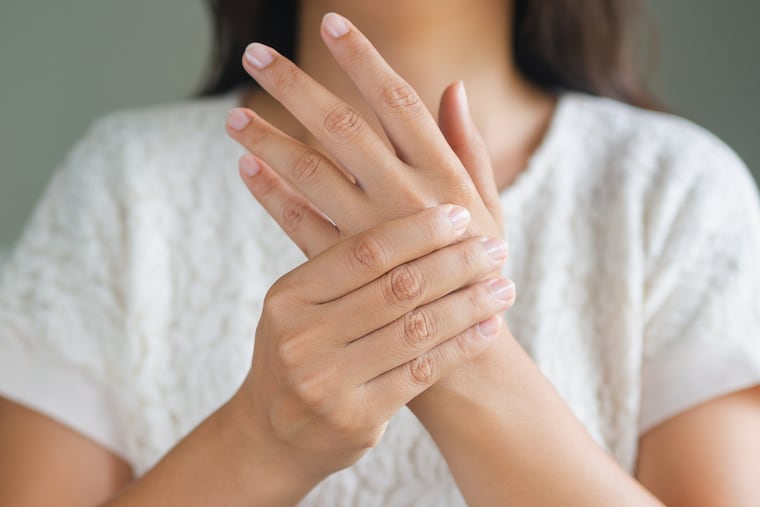Q&A: Best treatment options for carpal tunnel syndrome
The most common sign that you may have carpal tunnel syndrome is pins-and-needles in the fingertips, which can wake you from sleep at night.

Q: What are the best treatment options for carpal tunnel syndrome?
A: Carpal tunnel syndrome occurs when there is a pinched nerve in the narrow passageway of the wrist, called the carpal tunnel.
The most common causes of carpal tunnel syndrome are:
Congenital wrist anatomy.
Underlying health conditions, such as diabetes, rheumatoid arthritis or thyroid disease.
Jobs requiring awkward hand positioning or repetitive motion.
Fractures of the wrist.
Pregnancy.
The most common sign that you may have carpal tunnel syndrome is the feeling of pins and needles in the fingertips, which can wake you from sleep.
Sometimes people with carpal tunnel syndrome will have very minimal or no symptoms. Carpal tunnel syndrome can be confused with a pinched nerve in the neck.
The nonsurgical treatment for carpal tunnel is nighttime splinting to prevent bending the wrist into the position that increases compression of the nerve. Simple wrist splints, which limit wrist motion, are easy to find. My recommendation is to wear the splint for 10 to 12 hours at night.
A cortisone injection can reduce inflammation and discomfort.
If symptoms persist, a nerve study is performed to determine the severity of the condition.
Surgical treatment involves making a small incision in the wrist to cut the roof of the tunnel. This stops the compression of the nerve and results in resolution of symptoms. Patients are encouraged to use their hand shortly after surgery. Physical therapy is necessary only if patients experience post-surgery problems, such as finger stiffness or limited function.
Carpal tunnel syndrome can resolve on its own. If nighttime splinting does not help, speak with your doctor.
Paul Steinfield is a senior attending physician and surgeon at Nazareth Hospital who specializes in orthopedic surgery and treating conditions of the hand and wrist.